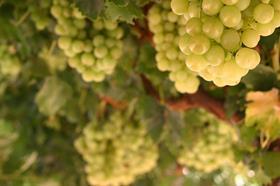
Thai biosecurity officials are likely to introduce a new phytosanitary protocol this month for Australian table grapes that will effectively halt airfreight shipments for at least one season.
The new protocol was opened to comment from Australia’s grape export industry last week, according to industry figures.
“Exporters had four days to comment on the protocol, which went back to Thailand last Friday,” David Minnis of M&A Exports told Fruitnet.com. “If it didn’t go back on Friday, Thailand had threatened to close the trade.”
The protocol requires cold sterilisation for fruit fly at 2.2°C for 20 days. In light of the recent outbreaks of Queensland fruit fly in Australia’s main grape export production region centred on Mildura, that requirement will effectively cut off Australian grape exports by air to Thailand, which has until now been the main form of transit.
“All my grapes go by air; just about every exporter sends by air,” said Mr Minnis. “Lots of buyers in Thailand don’t buy big quantities at a time, so airfreight suited them. Now they’re going to get lumpy delivery, which is harder to manage and pay for.”
Thailand has not put the protocol into effect yet, and is still in the pre-acceptance stage with Thai authorities following suggested changes by Australia, according to Jeff Scott, CEO of the Australian Table Grape Assocation.
Mr Scott added the protocol is expected to be finalised before the end of March, however.
“We’ve been advised by Biosecurity Australia that Thailand is on a timetable,” he said. “Table grapes are a priority for them, and they want `the protocol` finished by the end of March. We have sent back a number of alterations to the protocol; Thailand has to accept that, or if not there will be further negotiations which could delay things.”
The removal of the airfreight option will at least apply to the rest of the current Australian grape season, which is just beginning to see serious volumes after a cool summer pushed back the start of the season by three to four weeks.
Whether grape-growing regions in New South Wales and Victoria will be able to get fruit fly area freedom status reinstated by next season is also a question mark.
“The Department of Primary Industries is working furiously to make it not a problem,” said Mr Scott. “It’s going to be a lot of work to eradicate, but if we have a cold winter, the fruit fly should be gone by then. If we get freezing conditions for three or four nights, that will go a long way to eradicating the problem.”
But with the current outbreak of fruit fly detections at its worst point in the region for many years with almost 70 confirmed as of last week, Mr Minnis says there is definitely cause to doubt whether area freedom status will be reinstated in time for next season.
Australian grapes also hit their tariff trigger level volume of 1,339 tonnes late last month, raising the tariff rate from 13 per cent to 30 per cent as per the Thailand-Australia Free Trade Agreement (TAFTA).



